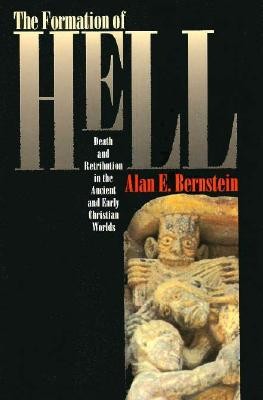
- We will send in 10–14 business days.
- Author: Alan E Bernstein
- Publisher: Cornell University Press
- ISBN-10: 0801428939
- ISBN-13: 9780801428937
- Format: 16.5 x 24.2 x 3.5 cm, hardcover
- Language: English
- SAVE -10% with code: EXTRA
Reviews
Description
What becomes of the wicked? Hell--exile from God, subjection to fire, worms, and darkness--for centuries the idea has shaped the dread of malefactors, the solace of victims, and the deterrence of believers. Although we may associate the notion of hell with Christian beliefs, its gradual emergence depended on conflicting notions that pervaded the Mediterranean world more than a millennium before the birth of Christ. Asking just why and how belief in hell arose, Alan E. Bernstein takes us back to those times and offers us a comparative view of the philosophy, poetry, folklore, myth, and theology of that formative age.Bernstein draws on sources from ancient Egypt, Mesopotamia, Greece, Rome, and Israel, as well as early Christian writings through Augustine, in order to reconstruct the story of the prophets, priests, poets, and charismatic leaders who fashioned concepts of hell from an array of perspectives on death and justice. The author traces hell's formation through close readings of works including the epics of Homer and Vergil, the satires of Lucian, the dialogues of Plato and Plutarch, the legends of Enoch, the confessions of the Psalms, the prophecies of Isaiah, Ezechiel, and Daniel, and the parables of Jesus. Reenacting lively debates about the nature of hell among the common people and the elites of diverse religious traditions, he provides new insight into the social implications and the psychological consequences of different visions of the afterlife.This superb account of a central image in Western culture will captivate readers interested in history, mythology, literature, psychology, philosophy, and religion.
EXTRA 10 % discount with code: EXTRA
The promotion ends in 17d.03:01:37
The discount code is valid when purchasing from 10 €. Discounts do not stack.
- Author: Alan E Bernstein
- Publisher: Cornell University Press
- ISBN-10: 0801428939
- ISBN-13: 9780801428937
- Format: 16.5 x 24.2 x 3.5 cm, hardcover
- Language: English English
What becomes of the wicked? Hell--exile from God, subjection to fire, worms, and darkness--for centuries the idea has shaped the dread of malefactors, the solace of victims, and the deterrence of believers. Although we may associate the notion of hell with Christian beliefs, its gradual emergence depended on conflicting notions that pervaded the Mediterranean world more than a millennium before the birth of Christ. Asking just why and how belief in hell arose, Alan E. Bernstein takes us back to those times and offers us a comparative view of the philosophy, poetry, folklore, myth, and theology of that formative age.Bernstein draws on sources from ancient Egypt, Mesopotamia, Greece, Rome, and Israel, as well as early Christian writings through Augustine, in order to reconstruct the story of the prophets, priests, poets, and charismatic leaders who fashioned concepts of hell from an array of perspectives on death and justice. The author traces hell's formation through close readings of works including the epics of Homer and Vergil, the satires of Lucian, the dialogues of Plato and Plutarch, the legends of Enoch, the confessions of the Psalms, the prophecies of Isaiah, Ezechiel, and Daniel, and the parables of Jesus. Reenacting lively debates about the nature of hell among the common people and the elites of diverse religious traditions, he provides new insight into the social implications and the psychological consequences of different visions of the afterlife.This superb account of a central image in Western culture will captivate readers interested in history, mythology, literature, psychology, philosophy, and religion.


Reviews